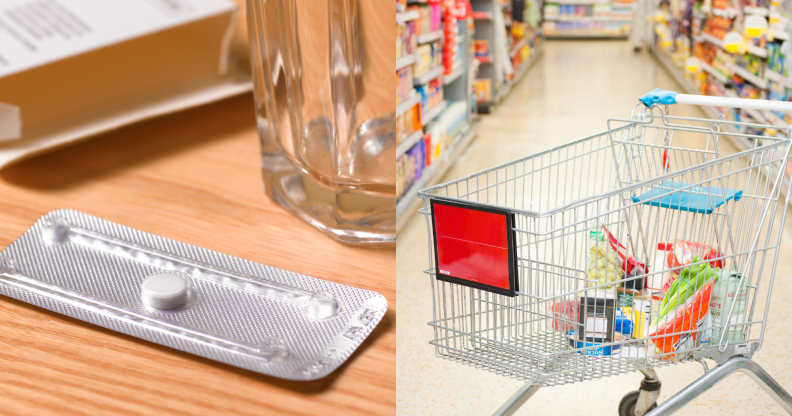Health workers call to make morning-after pill available ‘for everyone’ in shops and petrol stations

“It is so important that people can take full control of their own contraceptive needs.” (Getty)
The Faculty of Sexual and Reproductive Healthcare in the UK have called to make the morning-after pill “free for everyone”.
They’re also calling for it to be made widely available so that people can get ahold of emergency contraception “from supermarkets to petrol stations”.
The organisation — which represents 14,000 healthcare workers in the UK and is backed by the Royal College of GPs, the Royal College of Obstetricians and Gynaecologists — made the statement on 30 January. They suggested that oral emergency contraception should be reclassified from a pharmacy medicine to one for general sale, like ibuprofen or paracetamol.
Currently, women and those with uteruses who require the medication — which prevents or delays ovulation, and therefore prevents pregnancy from occurring, according to the NHS — can obtain the morning-after pill free of charge from sexual health clinics, NHS walk-in centres, GP surgeries and some pharmacies.
However, people who may be at risk of unplanned pregnancy are required to go through a medical professional for a consultation before taking the medication. This “does pose a barrier for some people, particularly on evenings, Sundays or national holidays when most pharmacies are shut”, said Dr Janet Barter, president of the organisation.
The medication must be taken within a strict time frame for it to be most effective in preventing pregnancy, as per the NHS.
Levonelle, one brand of emergency contraception, can be taken within 72 hours (3 days) of having unprotected sex but is most effective when taken within 12 hours of having unprotected sex. Another brand, ellaOne, can be taken within 120 hours (5 days) but is also most effective when taken as soon as possible.
Barter said: “Access to contraception is such a basic human right and it is high time we begin to remove the barriers people face accessing oral emergency contraception.
“We want to make oral emergency contraception free and easily accessible to everyone who needs it, at a time and place that suits them, be that in a supermarket or their local sexual health clinic.
“It is so important that people can take full control of their own contraceptive needs. We believe that the reclassification…would be an enormous step forward, giving people autonomy and empowering them to make the right decision for themselves.
“The next important step in the process to improve access to oral emergency contraception would be to make it free for everyone.”
The statement is also backed by the British Pregnancy Advisory Service, the National Unplanned Pregnancy Service, and sexual health and wellbeing charity Brook.

